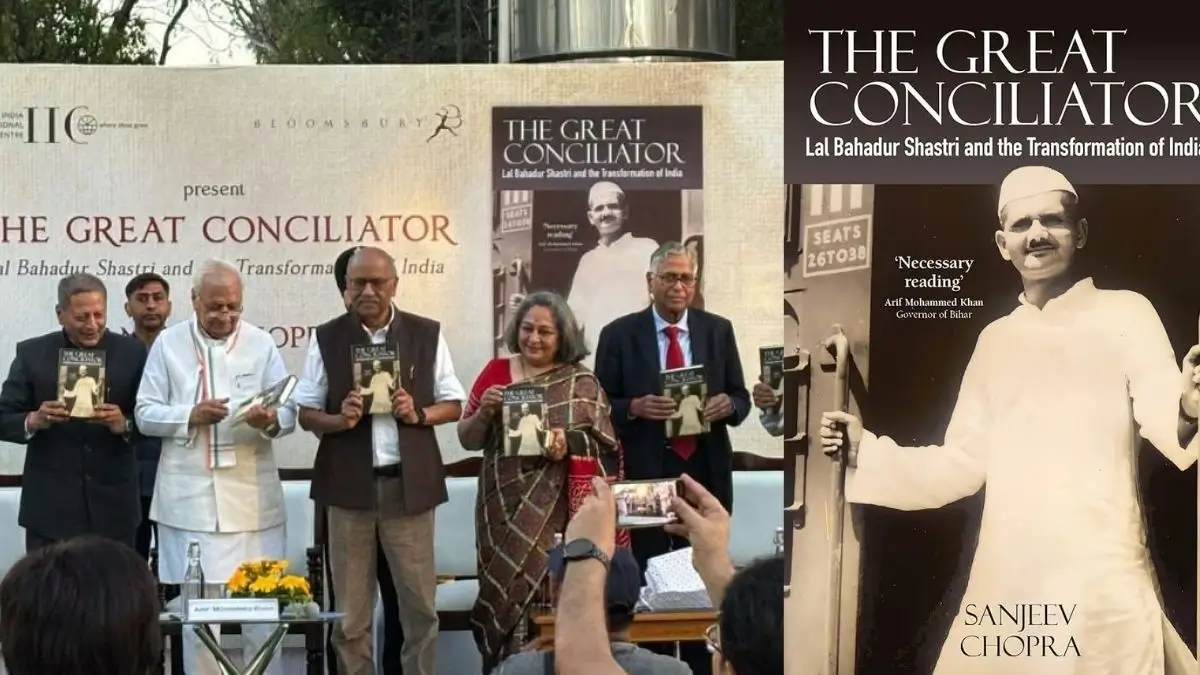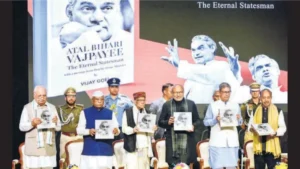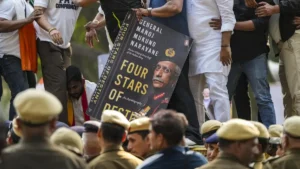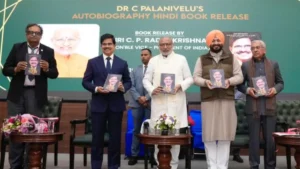Sanjeev Chopra’s latest book, The Great Conciliator: Lal Bahadur Shastri and the Transformation of India, offers a comprehensive look at India’s second Prime Minister, a leader often overshadowed in history books. Chopra, a historian and former IAS officer, explores Shastri’s political, social, and administrative journey, from his early life in Mughalsarai to his nation-building initiatives, including the formation of the Border Security Force (BSF) and the iconic slogan “Jai Jawan, Jai Kisan.”
Key Highlights of the Book
Lal Bahadur Shastri’s Overlooked Legacy
- Despite a four-decade-long political career, history has not given Shastri the recognition he deserves.
- He played a pivotal role in stabilizing India post-Nehru and strengthening the country’s administrative framework.
- Unlike assertive leaders, he believed in listening, consensus-building, and finding middle ground.
Shastri’s Upbringing and Its Influence
- Born into a middle-class Kayastha household in Mughalsarai (now Pandit Deen Dayal Upadhyaya Nagar).
- Raised in an environment that valued education, discipline, and service, shaping his political and administrative values.
- Studied at Kashi Vidyapith, an institution that played a crucial role in his ideological and leadership development.
Shastri’s Leadership Style: A True Conciliator
- Known for his ability to listen and accommodate different perspectives.
- Successfully resolved the language dispute in South India, where he considered people’s concerns before making policy decisions.
- Balanced both political acumen and administrative efficiency, ensuring stability in governance.
Major Contributions of Lal Bahadur Shastri
- Formation of the Border Security Force (BSF)
- The Rann of Kutch incident highlighted the need for a centralized border security force.
- Until then, state police forces managed border security, leading to inefficiencies.
- Shastri convinced states to hand over border control to a unified force, leading to the creation of BSF.
Jai Jawan, Jai Kisan Slogan
- Coined during the 1965 Indo-Pak War and food crises in India.
- Recognized that both farmers and soldiers were the backbone of the nation.
- The slogan inspired agricultural growth and national unity.
Why Shastri Remains an Underrated Leader
- Did not impose his ideas forcefully like other leaders.
- Preferred consensus over confrontation, which led to less recognition in political narratives.
- Unlike Nehru or Indira Gandhi, he maintained a simple, grounded personality, avoiding flamboyant politics.
Relevance of Shastri’s Leadership Today
- India needs more leaders with his integrity, listening ability, and problem-solving approach.
- His pragmatic decision-making is still a guiding principle for effective governance.
| Summary/Static | Details |
| Why in the news? | The Great Conciliator A Book On Lal Bahadur Shastri |
| Book Title | The Great Conciliator: Lal Bahadur Shastri and the Transformation of India |
| Key Focus | Lal Bahadur Shastri’s life, leadership, and legacy |
| Shastri’s Leadership | A great listener, consensus-builder, and pragmatic leader |
| Major Contributions | Formation of BSF, Jai Jawan Jai Kisan slogan |
| Why He’s Overlooked | Not assertive, preferred negotiation over dominance |
| Relevance Today | India needs leaders with integrity and problem-solving skills like him |



 VP C. P. Radhakrishnan Unveils 'Atal Bih...
VP C. P. Radhakrishnan Unveils 'Atal Bih...
 Four Stars of Destiny: An Autobiography ...
Four Stars of Destiny: An Autobiography ...
 Vice-President Releases Hindi Edition of...
Vice-President Releases Hindi Edition of...








